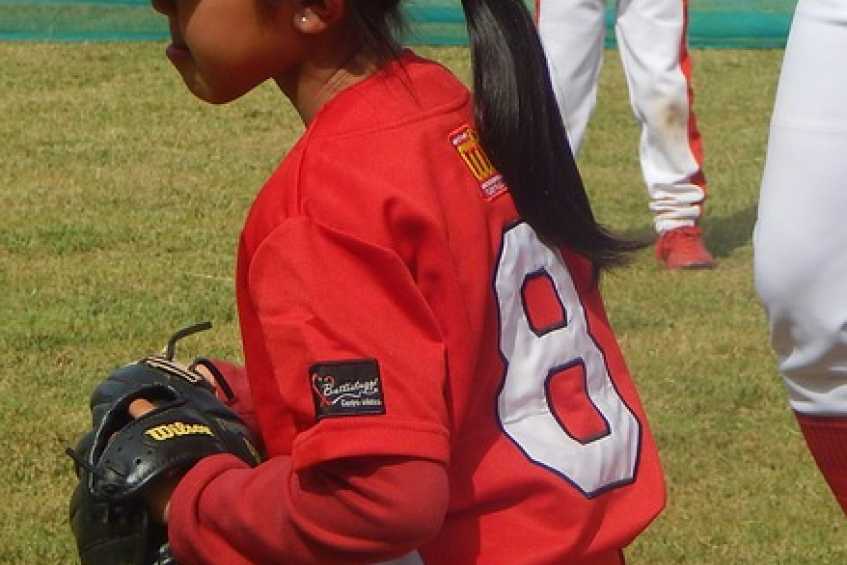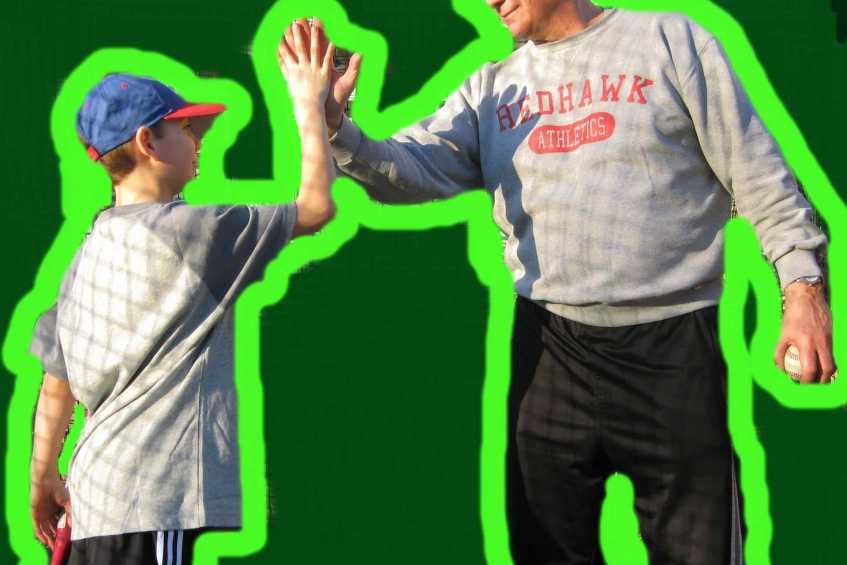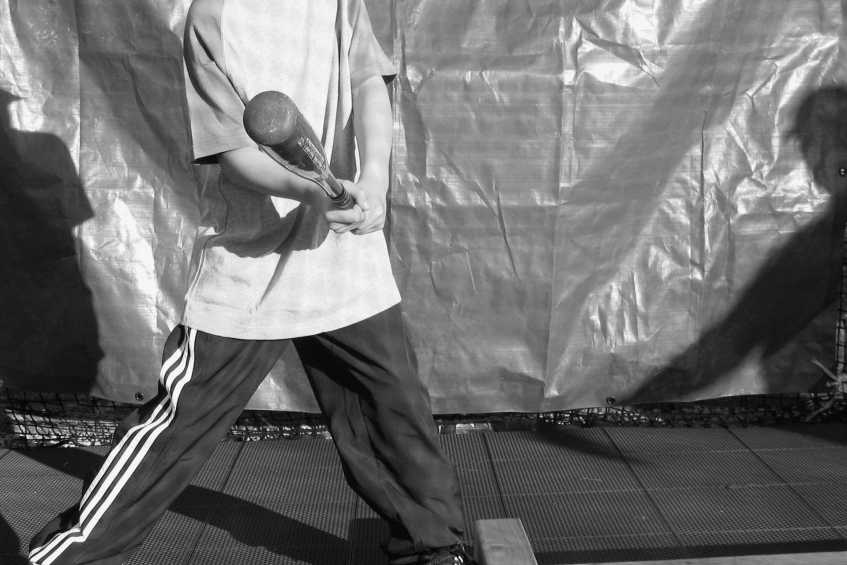


It's getting to be that time of year with MLB spring training near. That also means thatthe little league baseball season is around the corner. Many new coaches are set to begin their coaching careers. The problem is that most youth coaches have little training in coaching. Even seasoned youth coaches fall into some traps when coaching youth. The following little league coaching tipsmake the difference for a smoothseason and kids' futures inbaseball. If I have heard it once, I have heard it a thousand times, "My son quit baseball, it was too slow for him." A typical little league baseball scene is one player batting while the rest of the team stands around. Each player gets anoccasional ball that comes their way. What could be more boring than that? Over onother fields, soccer, football, basketball, and lacrosse players are on the move. Quite probably, they are having more fun because of the activity. The problem is not the game of baseball, but the coaches who do not know how to bring energy to the sport. Of course, baseball by itsnature is a slower moving game, but that should not mean it has to be boring. Mostbaseball coachesdo not know how to make the game more exciting. Theresult ofthat is many young athletes gravitatingaway from baseball. It is unfortunate and unnecessary when players quit baseball because coaches are inadequate. With knowledge of the following things, coaches can inspire baseball players to remain with the greatest game of all.
Mistake 1 - Too many kids are standing around with nothing to do. Solution - Set up small group stations with coaching supervision and instruction. When no help is available, coaches should stick with all-inclusiveteam drills and game play. For example, batting practice should have separate stations. Some players dobatting tee work, others flip work and somelive batting practice.Coaches should have the other players field batted balls in batting practice, so players engage and develop defensive skills. Mistake 2 - Talking too long. Long drawn out talks are an excellent way to bore kids. Attention spans are often short to begin with and especially when kids expect activity. Solution Keep instruction short and to the point. It is best to give brief explanations before having players work on a skill. Coaches should continue that pattern for the length of practice or until game play. Little League Coaching Mistake 3 Forgetting the main reason kids play any youth sport is for the fun. Solution Many coaches do not understand where fun comes from.Fun for kidsincludescaring adults, activity, challenge, improvement, competition, achievement, recognition, and socialization. Coaches, who can provide as many of these as possible fulfill kids desires of enjoyment. Notice that winning is not a priority for youth to play or for having fun. Mistake # 4 - Spending too much timeonone aspect of the game. Solution Add variety to the practice agenda. Spending too long on the same drills usually leads to apathy, fooling around, and negative attitudes. Coaches should keep the segmentsshort.They shouldteachthe skills ofhitting, throwing, fielding, pitching, and base runningat each practice. Mistake # 5 - Telling players what they are doing wrong or what to do instead of showing them. Words often go over players' heads or in one ear and out the other. Solution Coaches should add pictures, demonstrations and video analysis to instruction. Visuals go a lot further than words. Showing players make a huge difference to athletes learning.
 Little league coaching that works
Little league coaching that works
Mistake # 6 Failure to challenge each player to their ability. Many of the best players gravitate to other sports because the game comes too easy at first. Solution Challenging athletes iswhat sports are about andimportant for player improvement. Using softer and safer baseballs canhelp thechallenge of young players. With safe baseballs, coaches can hit and throwfaster to players.Players play with less fearand coaches have fewer injuries to deal with. Mistake # 7 - Waste practice time. Many coaches fail to teach duringwarm-uptime and throughout practices, which is when the fundamentals develop. Solution Have a written plan for practices, keep to it and use every minute possible to teach. Coaches should not wait to begin just because a player or two is late. Little league coaching Mistake # 8 - Do not include interested parents in baseball instruction and fail to give kids baseball homework. Solution Coaches should not be afraid to pass on their knowledge of the game to interested parents.They should always give everyone ways ofpracticing with their kids at home. Players develop quicker when everyone teaches the same things, so coaches shouldcoach the parents, too. Of course, this knowledge passing should be at the end of practices and games, so as not to have distractions and too many "chiefs" during practice. Coaching little league Mistake # 8 - My way or the highway approach. Coaches must understand that the modern athlete often has their private coaches, too. Solution Coaches must not insist that their way is the only way. They should be open to working with other coaches, so kids are not left to decide who to follow. Mistake # 9 - Selective coaching. Many coaches coach some players on their team and deem others beyond hope. Solution Over the course of the season, coaches should give equal attention to all. Coaches should understand that all kids are worthy of their effort and are never beyond hope. Mistake # 10 Playing some players more than others. Solution This solution is obvious and the most necessary of allthe above. Coaches must find ways of giving equal time to all over the course of the season. Nothing creates more player and parent dissension thanmore playing time for some. Unequal time is a sign of a win at all cost coach and is only for high school baseball and higher. Finally, a couple of other mistakes deserve mention. Giving false praise and entitlement to ballplayers is not a beneficial thing. They both give players the beliefthatapproval comes no matter their effort levels. #littleleaguebaseball #littleleaguecoaching Jack Perconte has dedicated his post-major league baseball career to helping youth. He has taught baseball and softball for the past 27 years.His playing, coachingand parenting storieshelp create betterexperiences forathletes andparents.Jack has writtenover a thousand articles on coaching baseball and youth sports.Jack is the author of "The Making of a Hitter" and "Raising an Athlete." His third book "Creating a Season to Remember" is in the works. Jack is a featured writer for Baseball the Magazine. You can also findJack Perconte at YouTube withover 80 fun and innovative baseball instructional videos.
Solution This solution is obvious and the most necessary of allthe above. Coaches must find ways of giving equal time to all over the course of the season. Nothing creates more player and parent dissension thanmore playing time for some. Unequal time is a sign of a win at all cost coach and is only for high school baseball and higher. Finally, a couple of other mistakes deserve mention. Giving false praise and entitlement to ballplayers is not a beneficial thing. They both give players the beliefthatapproval comes no matter their effort levels. #littleleaguebaseball #littleleaguecoaching Jack Perconte has dedicated his post-major league baseball career to helping youth. He has taught baseball and softball for the past 27 years.His playing, coachingand parenting storieshelp create betterexperiences forathletes andparents.Jack has writtenover a thousand articles on coaching baseball and youth sports.Jack is the author of "The Making of a Hitter" and "Raising an Athlete." His third book "Creating a Season to Remember" is in the works. Jack is a featured writer for Baseball the Magazine. You can also findJack Perconte at YouTube withover 80 fun and innovative baseball instructional videos.
After playing major league baseball, Jack Perconte has taught baseball and softball since 1988 and offered valuable coaching training too. He has helped numerous youth players reach their potential, as well as having helped parents and coaches navigate their way through the challenging world of youth sports. Jack is one of the leading authorities in the areas of youth baseball training and coaching training advice.
All Jack Perconte articles are used with copyright permission.There are 0 comments on "Little League Coaching: Biggest Mistakes and How not to make them"
chandler allen says:
"Hi my name is chandler, i’ve enjoyed..."
On Wanting to tryout for summer ball. as an 18 year old
david graham says:
"With no current MLB team in Canada,..."
On With no current MLB team in
Charles Chavez says:
"To All Coaches: Do you have13U or..."
On Looking for Games